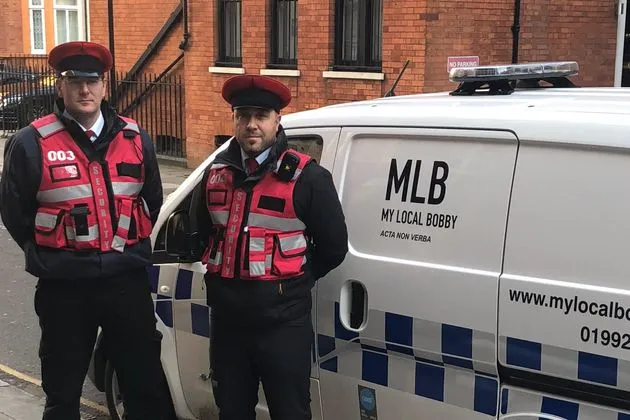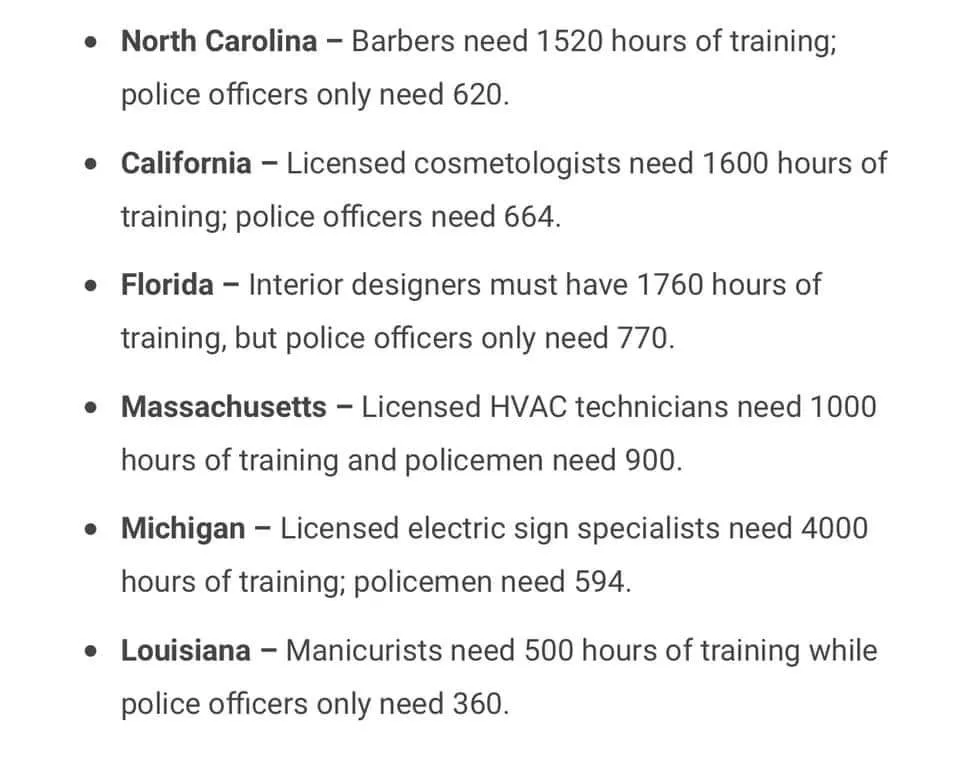
Police officers require comparatively little training hours compared to other professions, yet, their salaries are largely unaffected by their performance or even when more Police are added to the force.
Some people, particularly the anarchist and libertarian people; envision a model where private policing companies “bid” for city contracts.
The negatives I do worry about include:
- bids being focused on price with training being the place that costs are cut
- pols choosing based on who will be toughest on crime, so the private orgs focus on extremist tactics
- long-term contracts that make accountability a challenge
They may be right, and I wrong, but I just see policing as the exercise of authority, so always tending toward going wrong. And the more authority, the more it attracts those with authoritarian and psychopathic tendencies. And then there's the reality that somebody has to be the one dealing with the absolute worst people among us, and it's asking too much of people, probably, to demand that they not be warped by that. (I know of a judge who deals with all the local child molestation cases. She's known as being something of a bitch, and her response is "you would be, too, if you dealt every day with what I deal with," and I think she's right.)
So I see police as the very epitome of the problem of a necessary evil.

I can't vouch for these numbers, but the general disparity aligns with other sources I've seen. And as shocking as they may seem to you, there's a simple explanation.
Barbers, cosmetologists, interior designers, etc., are in competition with each other. More people in the field can reduce each professional's income. Strict training requirements limit competition. It's a simple cartel model. And those who've gone through that training may also resent the idea that future professionals in their field won't have to go through what they did, so they fight against legislation that would reduce the required amount of training, even though they will nearly all agree that much of it is pointless.
Police, however, are not in competition with each other. When someone calls the police, they don't (normally) pick and choose which police to have come serve them. And having more police doesn't reduce any individual officer's income. It can possibly increase it as police on any given force may be able to flex more political muscle if there are more of them.
Neither the requirements of professional training nor of police training are driven primarily by the necessary knowledge base to do the job. That's the romantic view of public policy, that policies are objectively focused on real need, as opposed to real clout.